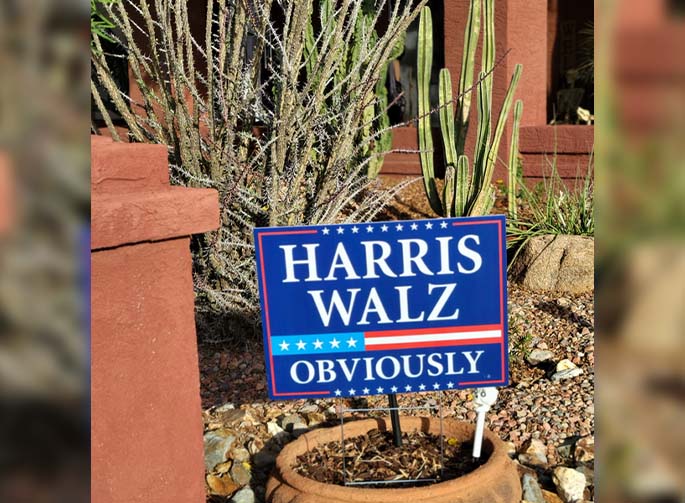TRENTON, NJ — As America watches and waits, Arizona’s vote-counting process has once again stretched into days after Election Day, leaving many wondering: why is it taking so long?
The delayed vote count in Arizona is not just a state problem. Right now, it’s affecting the entire country, including the House of Representatives, which has a big impact for many states like New Jersey. New Jersey is a predominantly blue state with many Democrats in Congress.
Republican control of Congress is vital to the nearly 48% of voters who want change in America. The outcome of those elections is vital to New Jersey, whether you realize it or not.
While the prolonged wait for results can seem frustrating, several factors make Arizona’s counting process uniquely lengthy. Here’s a closer look at the reasons behind the delay and what they mean for voters and observers alike.
Record Numbers of Early and “Late-Early” Ballots
Arizona voters are enthusiastic about early voting, with nearly 90% of the electorate choosing to vote early, mostly by mail. This year, however, a high percentage of those ballots were dropped off on Election Day itself. Known as “late-early” ballots, these ballots are subject to the same signature verification process as regular mail-in ballots, but they arrive in bulk, requiring additional time and resources to process. In Maricopa County alone, hundreds of thousands of these “late-early” ballots poured in right before the deadline.
Ballots Are Getting Longer
This year’s ballot in Arizona spans up to two pages, thanks to an unusually large number of races and ballot initiatives, adding another layer of complexity. Each ballot must be carefully scanned, checked, and sometimes physically separated into multiple sheets, adding hours to the process. Election officials have warned that even with round-the-clock work, processing this volume accurately takes time.
New Legal Requirements
A mix of new Arizona state laws and court decisions designed to improve ballot accuracy has, ironically, extended the vote-counting timeline. Some laws require additional verification steps, such as cross-checking voter signatures and tracking down missing information, which officials must follow to ensure each ballot is valid. These safeguards, while essential for accuracy, add hours, if not days, to the counting process.
Mail-In Ballots Flood the System
While early and mail-in voting are nothing new in Arizona, the sheer volume of mail-in ballots this year has exceeded expectations. With voters dropping off ballots on Election Day, county offices are overwhelmed by the need to verify and count these late arrivals. According to state law, each signature must be verified individually to ensure that only eligible ballots are counted, an inherently time-consuming step.
So, When Will Arizona’s Final Results Be Ready?
According to Maricopa County election officials, the wait could stretch up to 10 or even 13 days after Election Day. While Arizona’s process may feel painfully slow, officials stress that accuracy is the top priority. In the meantime, Arizonans—and the rest of the country—are asked to remain patient as workers continue to process and verify each vote.
For now, Arizona’s election officials are focused on providing accurate results, even if that means slower reporting. In a state known for its close races and high stakes, every ballot counts, and election officials say they’re determined to get it right—even if it takes a little longer.

